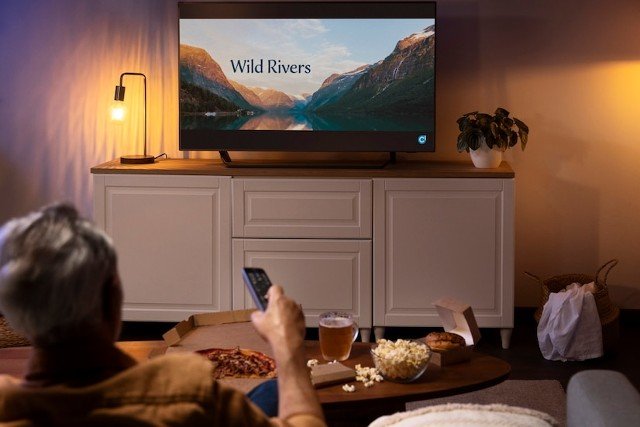Key differences between IPTV and an Android Box explained
In recent years, the way people consume television content has drastically changed, with an increasing number of viewers opting for Internet-based streaming services. The Airtel android box for TV and IPTV are two popular options that cater to this growing market. However, there is often confusion about the differences between these two technologies.
This article aims to shed light on the key distinctions between an IPTV and an Android box, providing consumers with the information necessary to make informed decisions about their television viewing options.
IPTV: A Brief Overview
IPTV, that stands for Internet Protocol Television, is a digital television broadcasting technology that delivers television content over the Internet. Unlike traditional cable or satellite TV, IPTV uses your existing Internet connection to stream content directly to your television or other compatible devices. This allows for greater flexibility, as viewers can access a wide range of channels and on-demand content without the need for a satellite dish or cable subscription.
Airtel Android Box for TV: An Overview
An Android box, also known as an Android TV box, is a small device that connects to your television and runs on the Android operating system. This allows users to access a range of applications and streaming services, including popular platforms like Netflix, Amazon Prime Video, and YouTube. Airtel Android box for TV is one such device that offers a variety of streaming options and enables users to download apps and games from the Google Play Store, transforming their television into a smart TV.
Key Differences between IPTV and an Android Box
- Content Delivery:
One of the primary differences between IPTV and an Android box is the way content is delivered. IPTV relies on Internet Protocol (IP) to transmit television content, while an Android box uses various streaming applications to access content. This means that IPTV users can watch live television and access on-demand content through their Internet connection, while Android box users must rely on individual apps to stream content.
- Channel Selection:
IPTV typically offers a more extensive channel selection compared to an Android box. Most IPTV services provide access to hundreds or even thousands of channels, including international options and premium networks. On the other hand, the channel selection on an Android box is dependent on the apps and streaming services available, which can be more limited.
- Subscription Model:
IPTV services often require a monthly subscription to access their content, similar to traditional cable or satellite TV providers. This subscription fee covers the cost of accessing live channels and on-demand content. In contrast, Android boxes do not usually require a subscription for the device itself but may require individual subscriptions for certain streaming services, such as Netflix or Amazon Prime Video.
- Device Compatibility:
IPTV can be accessed on a variety of devices, including smartphones, tablets, and computers, as well as television sets with the use of a set-top box. This offers greater flexibility for viewers who wish to watch content on multiple devices. Android boxes, on the other hand, are specifically designed for use with televisions and may not be compatible with other devices.
- User Interface:
The user interface for IPTV and Android boxes also differs significantly. IPTV services often feature a simple, straightforward interface that resembles traditional television channel guides. This makes it easy for users to navigate through channels and find their desired content. In contrast, Android boxes offer a more versatile interface, with users able to download apps, browse the web, and customize their viewing experience.
- Internet Connection Requirements:
Both IPTV and Android boxes require a stable Internet connection to function properly. However, IPTV may require a higher bandwidth to deliver high-quality streaming, especially for live television broadcasts. Android boxes, on the other hand, may have lower bandwidth requirements, as they rely on individual apps to stream content.
In conclusion, IPTV and Airtel android box for TV offer unique advantages for viewers looking to access television content through the Internet. IPTV provides a more extensive channel selection, a straightforward user interface, and seamless access to live television and on-demand content. On the other hand, Android boxes offer greater versatility in terms of available apps and streaming services, as well as the ability to transform a regular TV into a smart TV. Ultimately, the choice between an IPTV and an Android box will depend on individual preferences, budget, and desired features.




